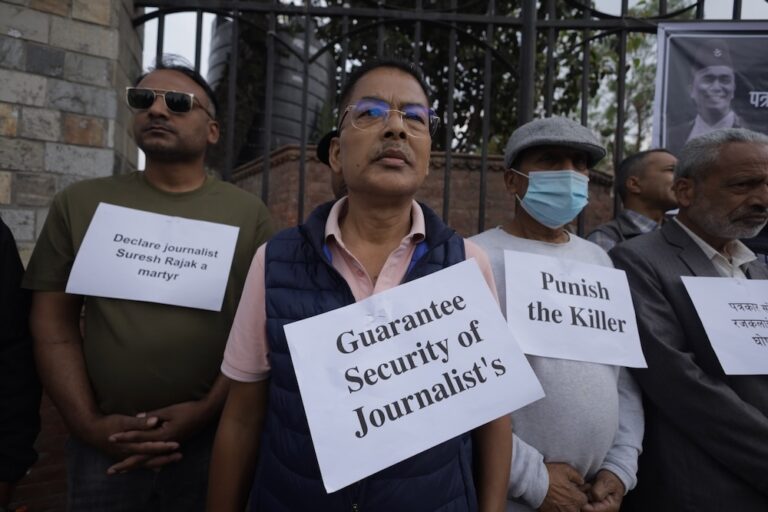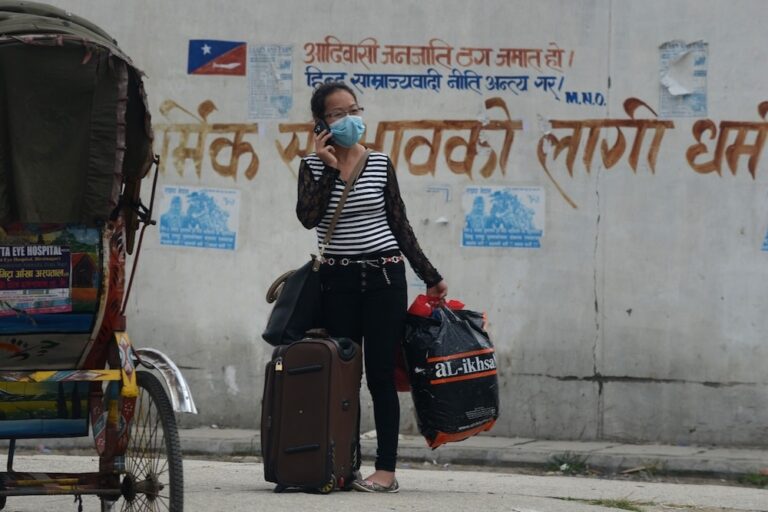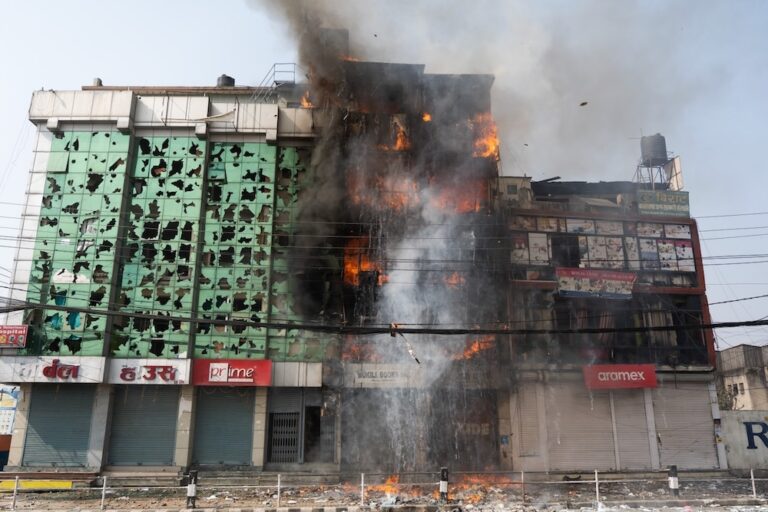(CEHURDES/IFEX) – CEHURDES has condemned and expressed its shock over the ongoing action against media workers by the security forces, who are impeding the practice of free and fair news reporting under the guise of enforcing the “state of emergency” mandate. On 5 January 2002, security forces detained BBC stringer Sharad K.C. in western Nepal, […]
(CEHURDES/IFEX) – CEHURDES has condemned and expressed its shock over the ongoing action against media workers by the security forces, who are impeding the practice of free and fair news reporting under the guise of enforcing the “state of emergency” mandate.
On 5 January 2002, security forces detained BBC stringer Sharad K.C. in western Nepal, subsequently releasing him. K.C., who also works for the state-owned Radio Nepal, was picked up from the Radio Nepal office in the mid-western town of Nepalgunj and taken to a nearby Royal Nepalese Army barrack. He was released after nearly two hours in detention. Talking to media colleagues after his release, K.C. said that uniformed soldiers blindfolded him before taking him away in a van. After he was interrogated while blindfolded for nearly fifteen minutes, a junior army officer ordered that K.C.’s blindfold be removed and sought his cooperation in the on-going army operation. The move is seen as a ploy to intimidate local journalists.
On 17 December 2001, the security forces acted in a similar fashion, taking into custody Bandhu Thapa, publisher of the weekly “Deshantar”, and Gopal Budhathoki, editor and publisher of the weekly “Saanghu”, in Kathmandu. The two were subsequently released after twenty-four hours (see IFEX alert of 19 December 2001).


